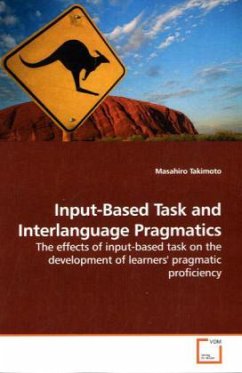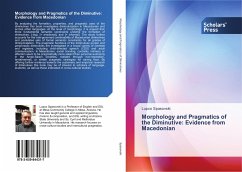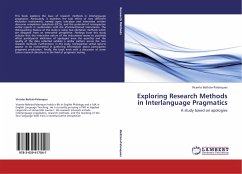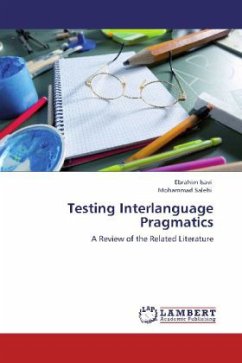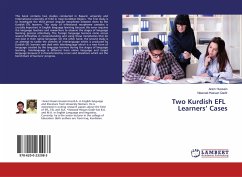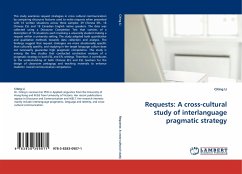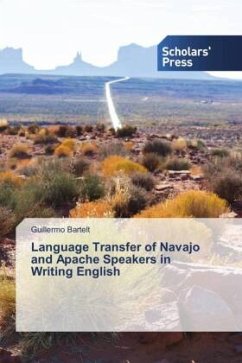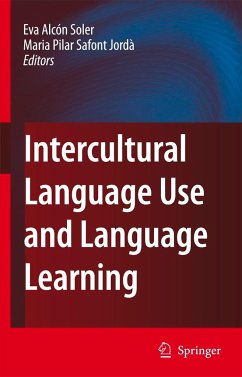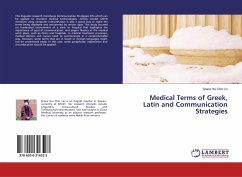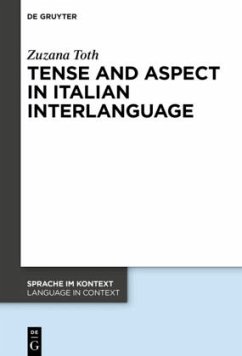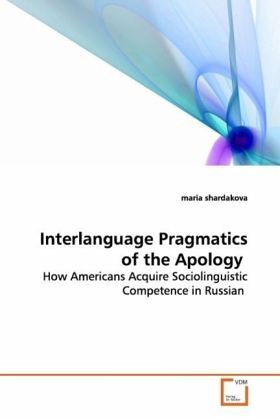
Interlanguage Pragmatics of the Apology
How Americans Acquire Sociolinguistic Competence in Russian
Versandkostenfrei!
Versandfertig in 6-10 Tagen
39,99 €
inkl. MwSt.

PAYBACK Punkte
20 °P sammeln!
Learning a language goes beyond acquisition of alinguistic system and includes the knowledge of whenand how to use linguistic forms appropriately invarying socio-cultural contexts. Over the pastdecade, the discussion of educational objectives oflanguage teaching and learning has placed aparticular emphasis on developing cross-culturalawareness. This book investigates the development ofintercultural pragmatic competence by American adultlearners of Russian in relation to both advancementin linguistic proficiency and study abroadexperience, lending empirical support to the conceptof language lea...
Learning a language goes beyond acquisition of a
linguistic system and includes the knowledge of when
and how to use linguistic forms appropriately in
varying socio-cultural contexts. Over the past
decade, the discussion of educational objectives of
language teaching and learning has placed a
particular emphasis on developing cross-cultural
awareness.
This book investigates the development of
intercultural pragmatic competence by American adult
learners of Russian in relation to both advancement
in linguistic proficiency and study abroad
experience, lending empirical support to the concept
of language learning as acquisition of both a
linguistic system and accompanying socio-cultural
knowledge. Communicative norms of contemporary
colloquial Russian are surveyed, including
gender-related and generational variations.
Recommendations for teaching and assessment are
provided, as well as suggestions for study abroad
planning.
This book will be useful to second language
professionals, researchers and teachers alike,
particularly those interested in interlanguage and
cross-cultural pragmatics, as well as those involved
in formulating study abroad policies.
linguistic system and includes the knowledge of when
and how to use linguistic forms appropriately in
varying socio-cultural contexts. Over the past
decade, the discussion of educational objectives of
language teaching and learning has placed a
particular emphasis on developing cross-cultural
awareness.
This book investigates the development of
intercultural pragmatic competence by American adult
learners of Russian in relation to both advancement
in linguistic proficiency and study abroad
experience, lending empirical support to the concept
of language learning as acquisition of both a
linguistic system and accompanying socio-cultural
knowledge. Communicative norms of contemporary
colloquial Russian are surveyed, including
gender-related and generational variations.
Recommendations for teaching and assessment are
provided, as well as suggestions for study abroad
planning.
This book will be useful to second language
professionals, researchers and teachers alike,
particularly those interested in interlanguage and
cross-cultural pragmatics, as well as those involved
in formulating study abroad policies.



